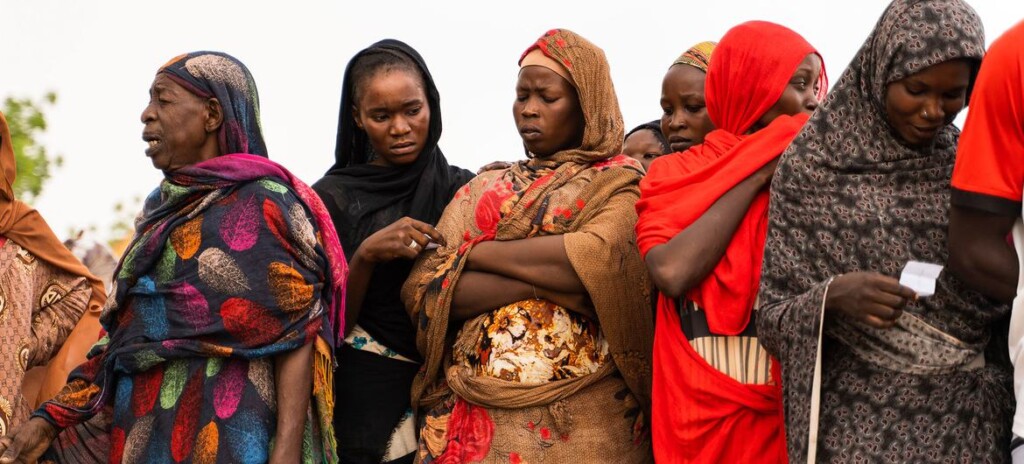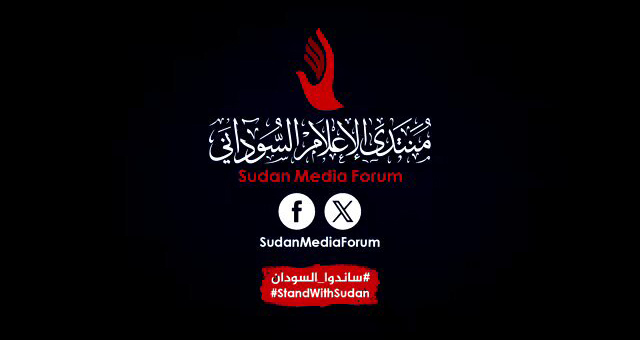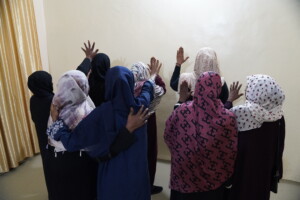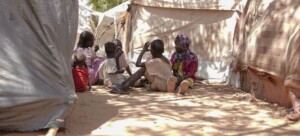Healthcare collapse threatens pregnant women in Sudan’s Sharg El Nil

Sudanese women waiting for aid distribution in Wad Madani, El Gezira, Sudan (File photo: UNOCHA / Ala Kheir)
Sudan Media Forum: Joint Newsroom
Prepared by: El Alag Center for Press Services
Pregnant women in Sharg El Nil (East Nile) area, particularly in Haj Yousef, are living a terrifying nightmare that threatens their lives and the lives of their unborn children. The lack of medical services has led to a rise in maternal and foetal mortality rates, alongside serious, life-threatening health complications.
The closure of hospitals and obstetrics and gynaecology centres in Sharg El Nil has caused an alarming increase in maternal deaths and obstructed labour cases. This is compounded by a lack of trained medical personnel, the theft of medical equipment, plundering, and repeated shelling and targeted attacks.
A lack of transportation and ambulance services leaves families to resort to dangerous methods, such as using a dardaga (a traditional wooden bed carried by people) to transport patients in emergencies.
Beyond the lack of medical services, pregnant women in Sharg El Nil suffer from malnutrition and psychological distress. The ongoing war has made it nearly impossible to access nutritious meals containing essential vitamins, leading to severe health complications for both mothers and their unborn children. Iron and vitamin deficiencies have also resulted in widespread anaemia among pregnant women.
The pervasive lack of security causes menstrual disorders and labour complications among pregnant women. The psychological toll of constant fear and anxiety, fuelled by the sounds of gunfire and explosions, directly affects the health of mothers and their babies.
With the continuing economic crisis and rising prices of goods and services, the cost of childbirth has increased significantly. The cost of natural childbirth has reached upward of 200,000 Sudanese Pounds (SDG), with many essential medicines and supplies, including anaesthetics and disinfectants, unavailable.
Deaths and miscarriages
The East Nile region has recorded several miscarriages and deaths among mothers and foetuses due to the deterioration of medical services and the lack of essential medicines.
Khadija, a young woman, lost her life after waiting 14 years to give birth because she could not reach the hospital in time. Mona also died from anaemia and severe bleeding following a miscarriage.
A licensed midwife, Q.S., has warned of the dangers of ignoring medical advice during pregnancy, particularly for first-time mothers. She stressed the importance of continuous medical follow-up for pregnant women, especially in times of war and the spread of epidemics.
GBV
Reports have indicated an alarming increase in the rate of early marriage in the Sharg El Nil area, which exposes young girls to significant health risks during childbirth. Female genital mutilation (FGM) also remains a major problem in the region, despite the efforts of international and local organisations to eliminate this harmful practice.
As previously covered by Dabanga, a May 2024 report found that several victims of gender-based violence (GBV) in Sudan have endured unwanted pregnancies due to inadequate access to medical attention. UN Women warned in September that the number of GBV cases in Sudan increased by 100 percent since the outbreak of war between the Sudanese Armed Forces (SAF) and the Rapid Support Forces (RSF) in April 2023.
In the face of this multifaceted crisis, humanitarian organisations and the local community are urgently calling on authorities and the international community to support the health sector in East Nile. Immediate interventions are needed to supply essential medicines and medical equipment, as well as provide psychological and material support to those affected by the war.
This report is published simultaneously on the platforms of institutions, media organisations, and press organisations that are members of the Sudanese Media Forum.
#SilenceKills #NoTimeToWasteForSudan #StandWithSudan #SudanMediaForum












 and then
and then